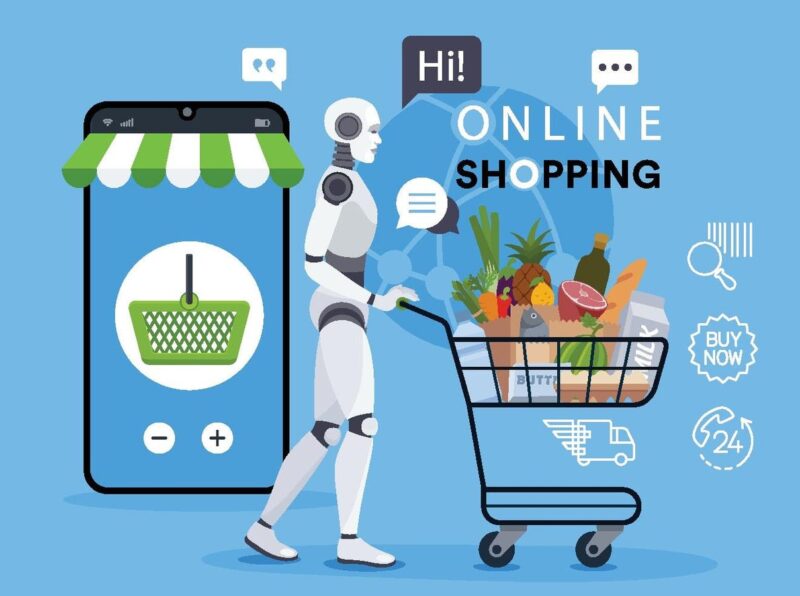Walmart and OpenAI are reshaping retail with agentic AI, blending efficiency and innovation. As AI handles repetitive tasks, humans are challenged to focus on creativity, strategy and meaningful work. The future of work is not just automated—it’s collaborative and adaptive.
getty
When Elizabeth Taylor famously declared her love was “forever,” she meant it—at least until it wasn’t. Decades later, Taylor Swift captures the same longing in her recent song “Elizabeth Taylor” Lyrics – “Do You Think It’s Forever?” from The Life of a Showgirl, reflecting on permanence, desire and inevitability. Yet what once applied to love and fame now finds a startling parallel in the world of technology: artificial intelligence. As Walmart partners with OpenAI to reimagine retail, we are forced to ask the same haunting question Swift poses: do we think it’s forever? And if AI’s reign is permanent, what becomes of the millions of human jobs that have sustained the economy until now, and how can humans continue to thrive alongside it?
On October 14, 2025, Walmart announced a sweeping partnership with OpenAI that sent its stock soaring nearly 5 percent to a record high. Customers can now shop directly through ChatGPT using “Instant Checkout.” Just tell the AI agents what you need and the system orders, pays and tracks delivery. CEO Doug McMillon called it the end of the “search bar” era. Wall Street cheered and praised the partnership.
Beneath the celebration, a deeper transformation is underway. Agentic AI is taking on repetitive, data-driven tasks, promising unprecedented efficiency. But permanence in this age is conditional. How society responds to these changes may determine whether this “forever” benefits humans as much as it does big tech.
Shifting Roles, New Opportunities
Walmart employs about 2.1 million people worldwide. The company emphasizes its “people-led, tech-powered” strategy, offering employees AI tools and certifications. Ideally, this helps humans move into roles that leverage creativity, strategy and interpersonal skills—areas where AI cannot compete.
Agentic AI is already handling recommendations, transactions and forecasting faster than humans. For those who adapt, the future may be one of collaboration: humans guiding AI, interpreting insights and designing meaningful experiences. Yet for those unable to pivot, traditional roles risk disappearing. Permanence is not guaranteed; it must be earned.
Rethinking Economic Loops
Walmart’s model has long depended on employing millions of workers who in turn shop there. Automation threatens to disrupt this loop. If adaptation succeeds, agentic AI frees humans to focus on innovation, strategy and human-centered work. Communities, educational systems and businesses must collaborate to ensure that human skills evolve alongside AI deployment.
If adaptation lags, the consequences could ripple widely: lost incomes, diminished consumer demand and local economies hollowed out. “Forever” in AI efficiency may arrive, but human opportunity could remain fragile.
A Glimpse of Tomorrow’s Retail
Imagine a future where shopping is predictive: ChatGPT knows your preferences, AI agents automatically order essentials and ensure timely delivery. Physical stores shrink, supply chains operate with algorithmic precision.
For those prepared, new roles emerge: AI supervisors, logistics strategists and creative problem-solvers. Humans may spend less time on repetitive tasks and more time designing, innovating and connecting with others.
Yet the risk persists. Without widespread adaptation, these transformations could leave large portions of the workforce disconnected. Efficiency might endure, but participation and fulfillment could become optional rather than universal.
Balancing Opportunity and Risk
Agentic AI holds potential beyond retail: healthcare, education and public services can all benefit. Those who embrace reskilling, creative roles and flexible work paths may flourish.
But if investment in human adaptation falls short, automation could exacerbate inequalities. The same technology that promises innovation may also leave communities struggling. Longevity in AI’s impact does not automatically translate to security or prosperity for humans.
Navigating a World Transformed
Walmart and OpenAI are exploring the frontiers of possibility, pushing efficiency and convenience. The challenge lies in how society navigates the accompanying changes.
This era offers a choice. If humans rise to the occasion, AI can amplify creativity, problem-solving and human connection. If humans lag, AI may outlast traditional institutions and jobs.
McMillon calls Walmart’s initiative a step toward a “more enjoyable and convenient future.” Perhaps that future can be both efficient and inclusive, where AI handles repetitive tasks and humans focus on work that brings purpose, innovation and connection.
In the end, when agentic AI becomes “forever,” it need not leave anyone behind—but only if humans meet it with foresight, adaptability and imagination. The permanence of AI efficiency is assured; the permanence of human relevance remains our choice.









